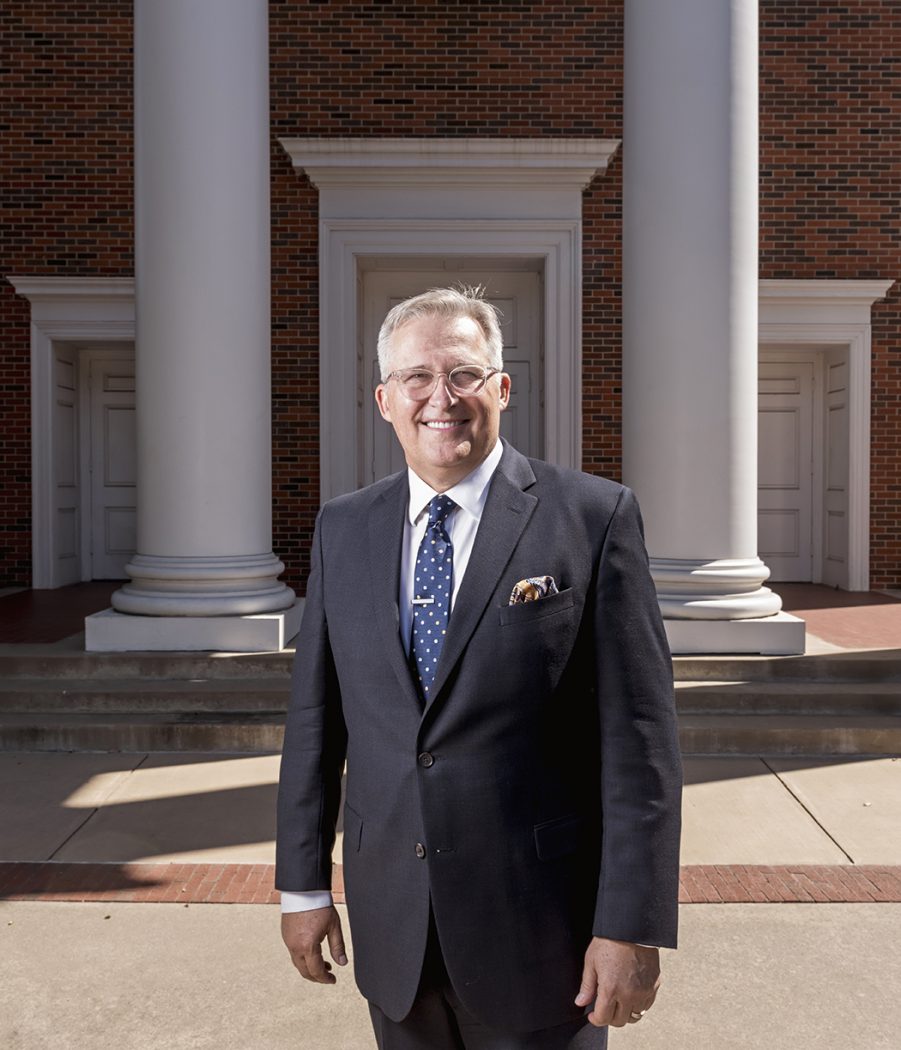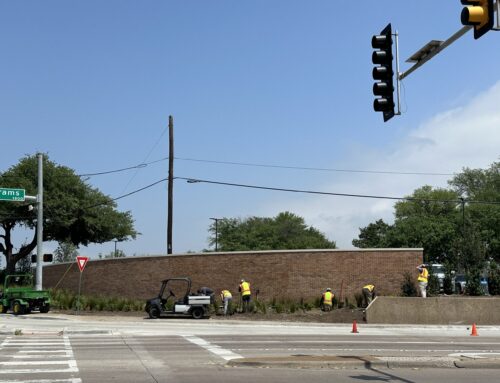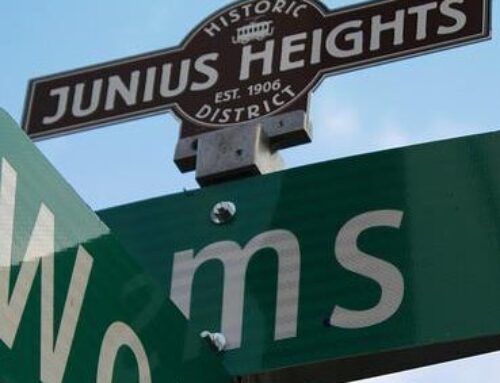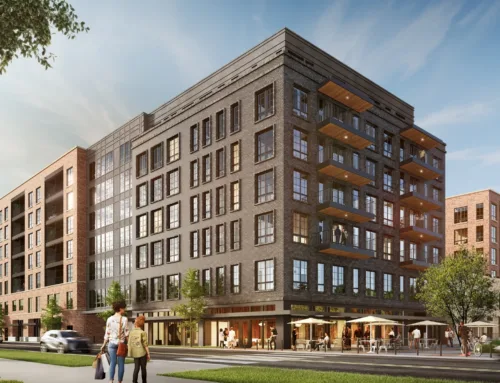Wilshire Baptist Church‘s senior pastor, George Mason, tends to enter the fray rather than steer clear of it. He is of the mindset that the Church — his own local congregation and those throughout the world — should be more externally than internally focused.
Mason is a dedicated practitioner of “public theology” — “engaging in public dialogue in terms understandable to an unchurched public,” as this story puts it, or “connecting grand religious ideas with messy human reality,” as aptly described in Krista Tippett’s “On Being” podcast page.
For more than 20 years, Mason has written columns for the Advocate focused on issues of public theology. Just last week, he launched a podcast, “Good God,” with a similar focus, hosting conversations that attempt to “refasten the ties that bind neighbor to neighbor” and “move people toward one another.”
The first two episodes feature his conversations with The Ticket’s Gordon Keith. The two have known each other a long time. Keith once nominated Mason as Texan of the Year for his role in the city’s ebola scare — the pastor’s “willingness to sit down with modern lepers and doubting Thomases,” as Keith put it.
The risk, and the benefit, of public theology is that it inevitably engages the public, beyond the literal and metaphorical “four walls” of the church. Nowhere in Wilshire’s history was this more evident than the church’s November 2016 decision to give full membership rights to its LBGT members.
The first Sunday after the decision, protestors showed up on Wilshire’s front steps during its worship services. They shouted through a bullhorn and held red, white and blue signs stating, “Repent America” and “Sin destroys nations.” East Dallas resident Kyle Rains approached them and asked them to come inside. “Your God is not our God,” Rains was told.
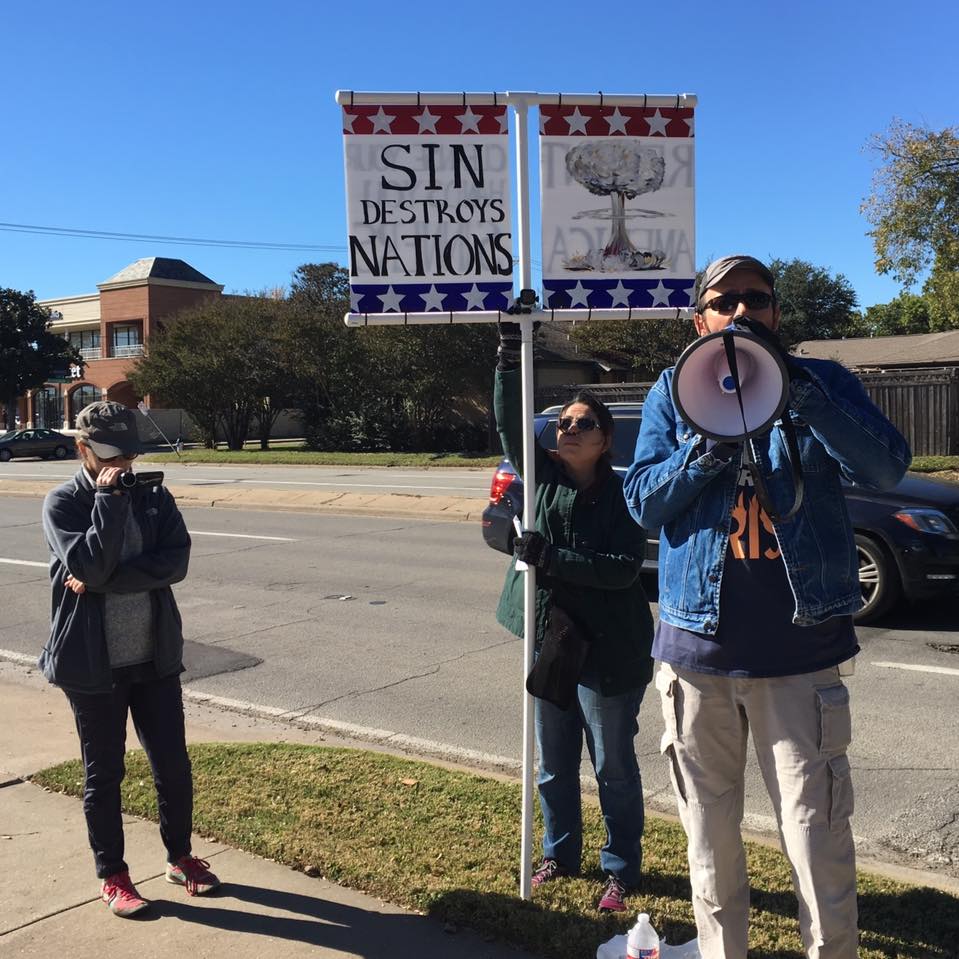
Image courtesy of Kyle Rains
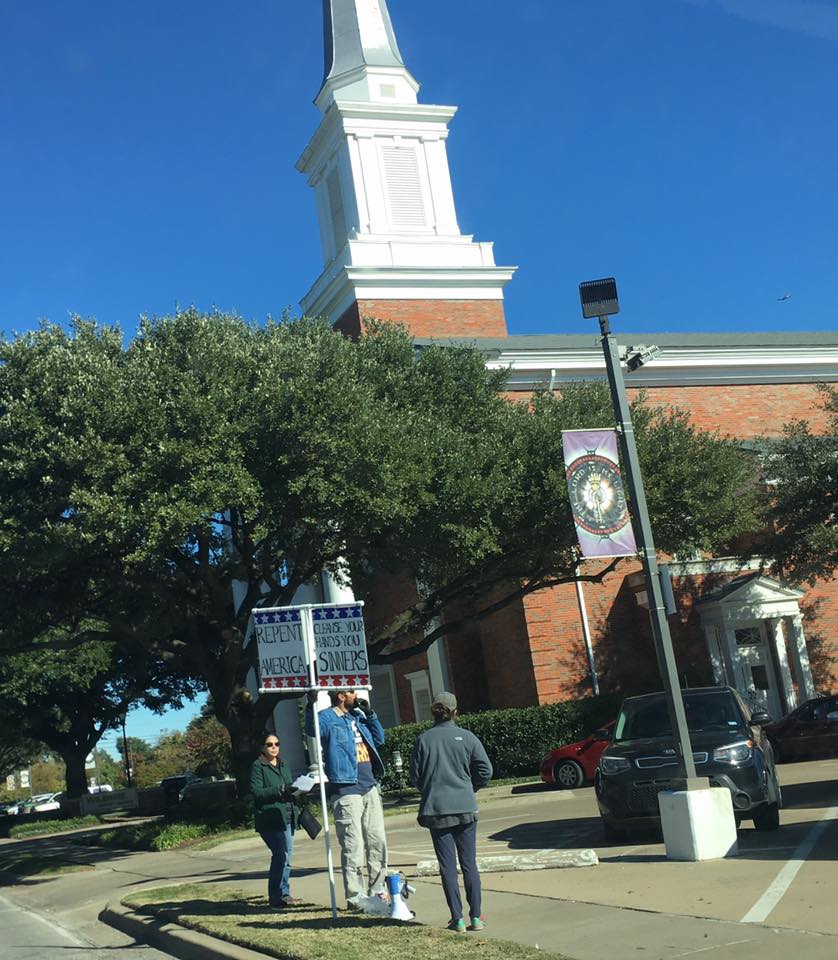
Image courtesy of Kyle Rains
The next Sunday, the neighborhood showed up for Wilshire. Their bright neon signs quoted 1 Corinthians 16:14, “Do everything in love,” and thanked Wilshire for “loving all.” Neighbor Marcia Phillips, who organized the counter-protest, says she did so “on impulse” after finding out about the original protest. Phillips doesn’t attend church, she says, but “I feel very strongly that my neighbors that do should be able to do so without persecution. I felt Wilshire’s choice to be inclusive to all was an amazing step forward.”
Both of these protests took place on the steps on the church, outside of its physical walls, and were led by people outside of the church’s social construct. And that’s the purpose of public theology — to take the inside out and bring the outside in.
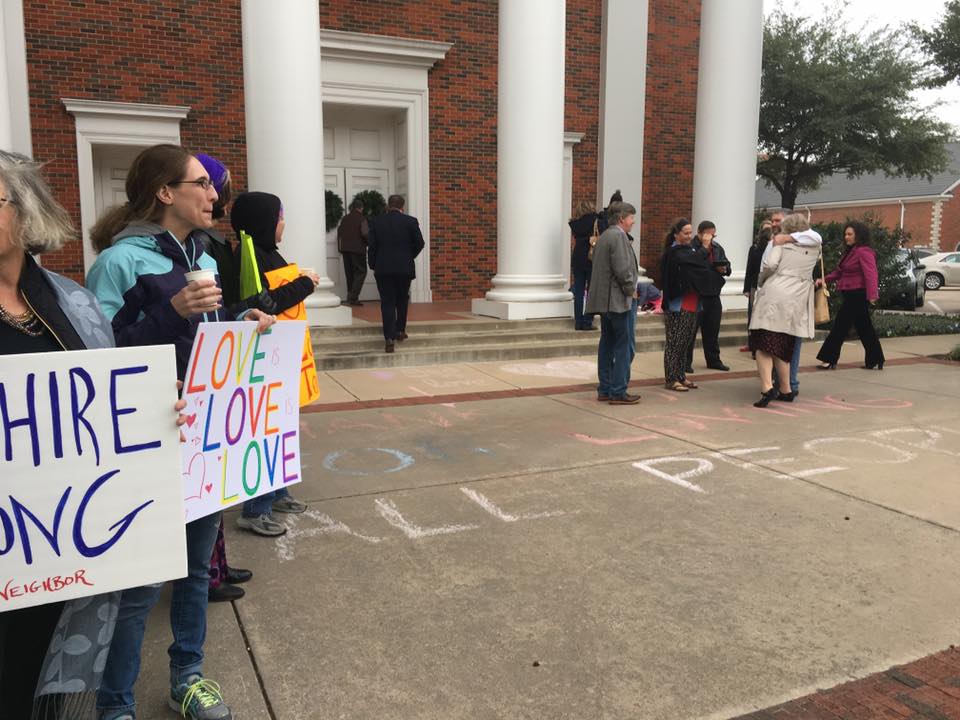
Image courtesy of Marcia Phillips
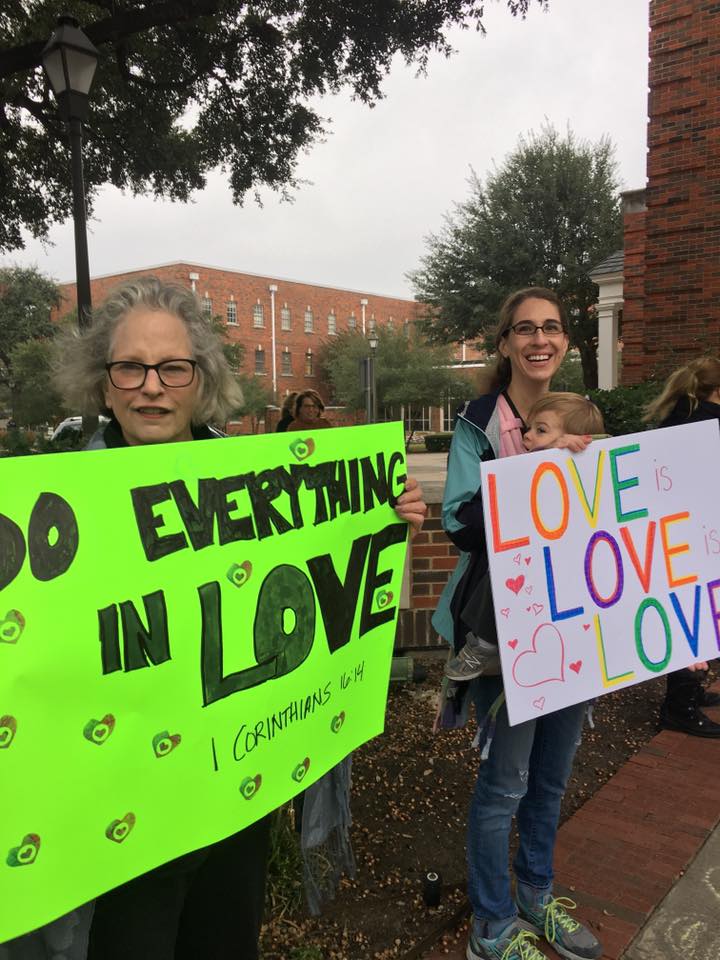
Image courtesy of Marcia Phillips
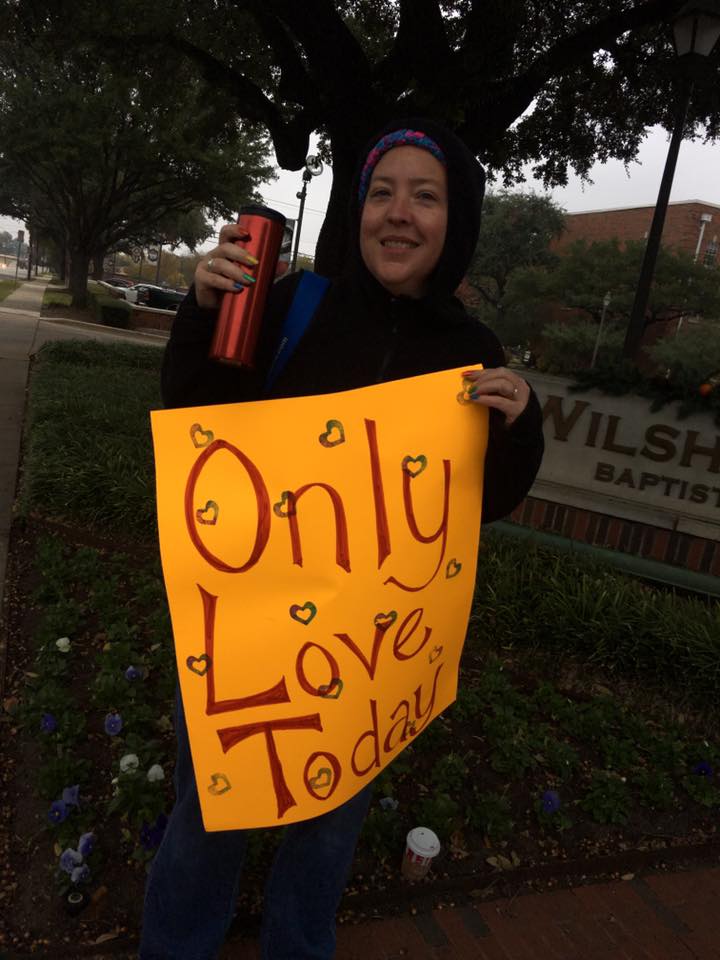
Image courtesy of Marcia Phillips
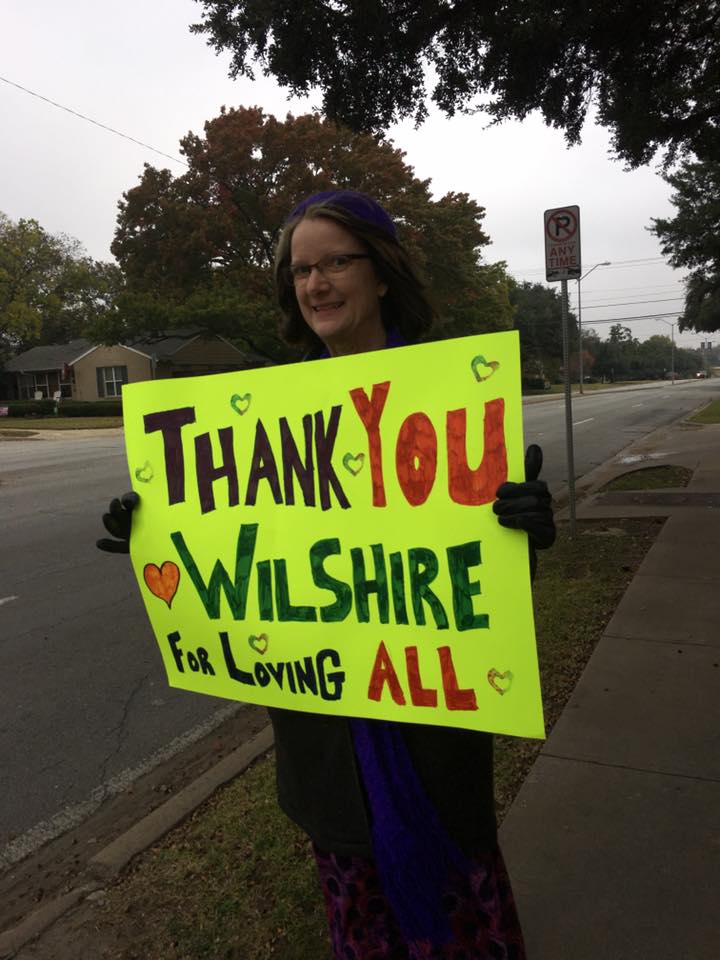
Image courtesy of Marcia Phillips
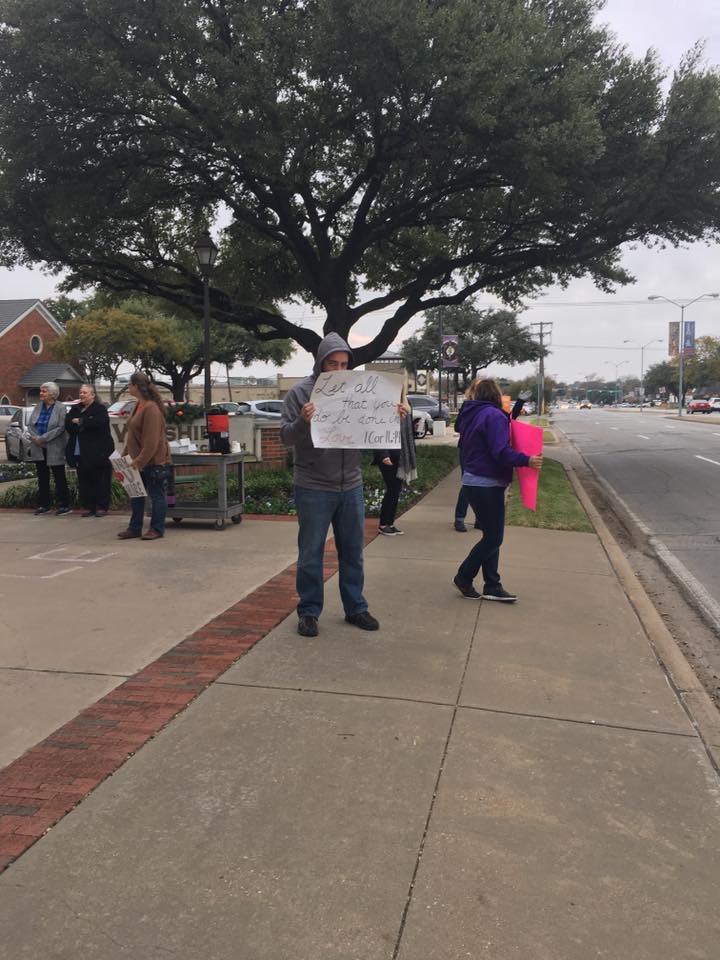
Image courtesy of Marcia Phillips

